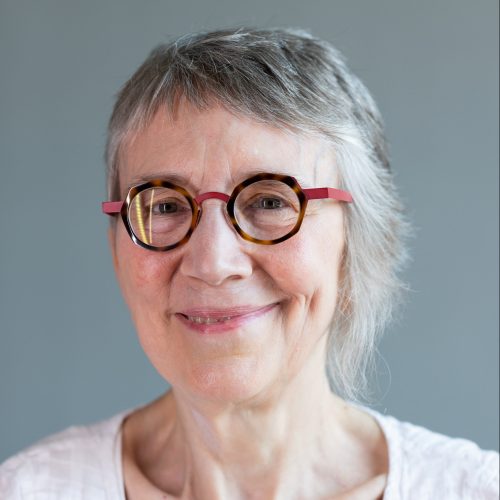
Heidi Kelley, Ph.D.
Professor of AnthropologyContact Information
I grew up in a village in Wisconsin. My college roommate thought it was funny that Mishicot (my hometown) didn’t have a single stoplight. My roommate also persuaded me to take my first anthropology class, “Anthropological Perspectives on Women.” I hadn’t the faintest idea what anthropology was. I thought it had something to do with digging or studying exotic lands, nothing relevant to my life. I was so wrong! I discovered that anthropology has everything to do with understanding what it means to be human. I went on to major in anthropology and take my doctorate in anthropology too.
I returned to a village—Ezaro, in the north westernmost region of Spain, called Galicia--for my dissertation fieldwork about women’s identity. Originally interested in studying women and depression in the United States, I realized, after my second year of graduate school, I wanted the challenge of doing participant observation in another language. I choose to start studying Spanish and targeted Galicia (whose people speak Gallego, adding a new linguistic challenge) as the location for my first fieldwork. I have maintained an academic passion for Galicia, returning over the years for shorter periods of fieldwork and to visit old friends.
Then, in 1998 I had a life-changing event: I had a massive stroke. I thought my career as an anthropologist and teacher was over. But I realized, lying in my hospital bed soon after my stroke that I was still an anthropologist, still a teacher. Since then, I have used my anthropological insights to understand my new culture of stroke, with yet another language to master, the language of silence. Now I do fieldwork in the culture of stroke and disability, forging new friendships with stroke survivors and other people with disabilities in Asheville and across North Carolina. As well, I am increasingly turning to more humanistic writing techniques (like poetry) to communicate insights about my various field sites.
My scholarly interests are reflected in my teaching. I teach elective courses about gender (“Writing Gender,” “Intersections of Gender in the Americas”), disruption (“Disrupted Lives: The Anthropology of Social Suffering”), psychological anthropology (“Culture and the Individual”), Europe (“Borderlands of Identity in Spain and Portugal”), disability (“Body, Disability, and Culture”), and humanistic anthropology (“Storied Anthropology”).
Education
- Ph.D., University of Washington
- M.A., University of Washington
- B.A., Lawrence University
Courses Taught
- ANTH100 Introduction to Cultural Anthropology
- ANTH323 Storied Anthropology
- ANTH339 Intersections of Gender in the Americas
- ANTH350 Body, Culture, and Disability
- ANTH353 Culture and the Individual
- ANTH357 Disrupted Lives: The Anthropology of Social Suffering
- ANTH361 Writing Gender
- ANTH374 Borderlands of Identity in Spain and Portugal
- ANTH/SOC 464 Social Narratives
Teaching and Research Interests
Cultural Anthropology, Disability Studies, Disruption and Social Suffering, Gender, European and Spanish Cultures, Humanistic Anthropology, Latin American and Latin@ Cultures, Psychological Anthropology